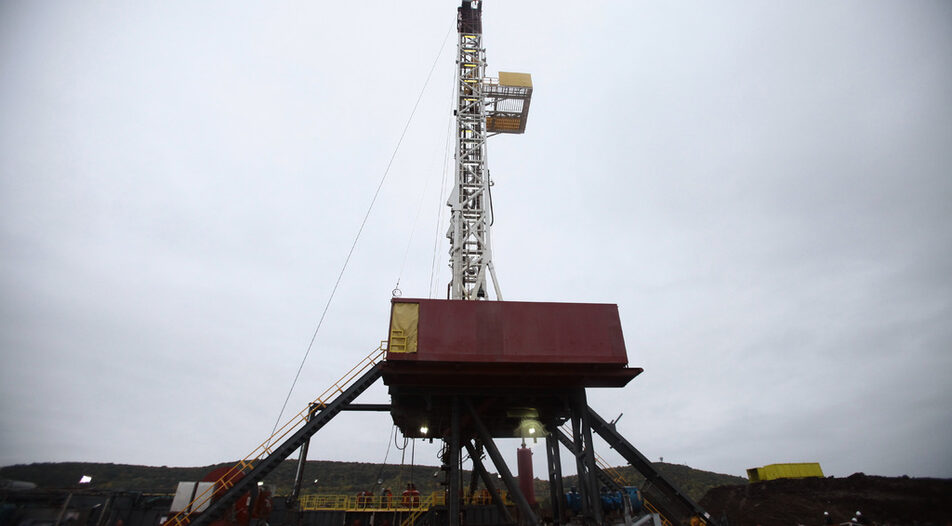Basically, there are two ways for Bulgaria to shift away from Russian natural gas - building the interconnectors with Greece and Serbia and increasing the capacity of its Chiren underground gas storage facility. For a long time, both options have been declared "projects of national importance" that are critical to the country's energy security. However, neither has been completed until the present day. On the other hand, former Prime Minister Boyko Borissov gave priority to Gazprom's Turk Stream project, which essentially provides an opportunity for Russian President Vladimir Putin to bypass Ukraine as a route for gas deliveries to Europe, whilst not bringing any real benefits to Bulgaria.
It is anticipated that the EU will cut two thirds of its Russian gas consumption by the end of 2022, but this puts Bulgaria in a difficult situation. The gas interconnection with Greece, likely to be commissioned in the second half of the year, will provide for the import of additional volume of Azeri gas under a contract for 1 billion cubic meters per year. However, this is only ⅓ of the country's consumption and if you do not intend to receive additional supplies (of liquefied natural gas, or LNG), the effect will not be sufficient. Building the interconnector with Serbia has not even started, and only this week gas transmission system operator Bulgartransgaz announced public tenders for the expansion of the Chiren gas storage facility. In the best of circumstances, the project could be completed by the end of 2024, or just 5-6 years before the use of natural gas in the EU faces severe restrictions due to decarbonization and energy transformation plans.
What is important about Chiren
The annual consumption of natural gas in Bulgaria amounts to about 3 billion cubic meters, with over two thirds of that volume consumed during winter months. And this is why the role of the Chiren gas storage is important - it has a working volume of 0.55 billion cubic meters (20-25% of winter consumption) and is filled in summer so that the stored gas can cover the rise in consumption in winter. If it can store more, Bulgaria will not be pressured as it is now - as of March 14, the storage was only 18.2% full, which is its lowest level for this time of the year.
In fact, Bulgaria is somewhat privileged in this regard, because, for example, Greece, Serbia and North Macedonia do not have their own storage facilities at all. Chiren was initially a gas field which was depleted in the 1960s and subsequently was turned into a gas storage. As a result, 2.8 billion cubic meters of natural gas were extracted from it in ten years. That is why its storage capacity now can be significantly increased, using certain technological solutions - from the current 0.55 billion cubic meters to over 1 billion cubic meters. And therefore, it will be able to cover half of Bulgaria's gas consumption in winter.
In addition to expanding the volume, the operating capacity also should be increased. Right now, a maximum of 4.5 million cubic meters per day can be extracted. This is surely not enough if there is a case like the current energy crisis with the suspension of gas supplies from Russia, because the amount of 4.5 billion cubic meters per day can cover only a third of the country's needs. There is simply no way to draw out gas fast enough to meet the needs - for example, on cold days consumption stands at about 13 million cubic meters per day.
New tenders
On March 15th, state-owned Bulgartransgaz, which operates Chiren, announced two tenders. One to expand the storage facility's capacity and the other to build an additional pipeline from it to the gas transmission network. The application deadlines were April 20 and April 8, respectively, and the capacity expansion project must be completed in two years. The estimated price of the first tender is BGN 300 million (EUR 153 million) without VAT.
The financing will be provided from Bulgartransgaz's own funds and a grant under the Connecting Europe Facility (CEF). A few weeks ago, it became clear that the gas storage expansion project would be funded by a 78 million euro grant. It is one of five energy projects and the only one in the field of natural gas for which the European Commission has announced that agreement has been reached among member states for funding under the CEF. This effectively means that half of the price will be covered by European money.
The second procurement procedure - for a gas pipeline connecting the storage facility with the existing gas transmission network of Bulgartransgaz in the area of the village of Bhutan, has an estimated price of BGN 820,000 without VAT. This project can be fully completed within a year.
On the 30th of March a third tender was announced by Bulgartransgaz - for building and commissioning underground gas storage facilities that will be interconnected to a compressor station.
The value of the new public tender is BGN 133.7 million without VAT. The project idea is that ten new operating wells and three monitoring wells would be launched to work together with the new compressor station and thus, in the next 2 or 3 years to build the necessary infrastructure in order to expand the gas storage.
Basically, there are two ways for Bulgaria to shift away from Russian natural gas - building the interconnectors with Greece and Serbia and increasing the capacity of its Chiren underground gas storage facility. For a long time, both options have been declared "projects of national importance" that are critical to the country's energy security. However, neither has been completed until the present day. On the other hand, former Prime Minister Boyko Borissov gave priority to Gazprom's Turk Stream project, which essentially provides an opportunity for Russian President Vladimir Putin to bypass Ukraine as a route for gas deliveries to Europe, whilst not bringing any real benefits to Bulgaria.












